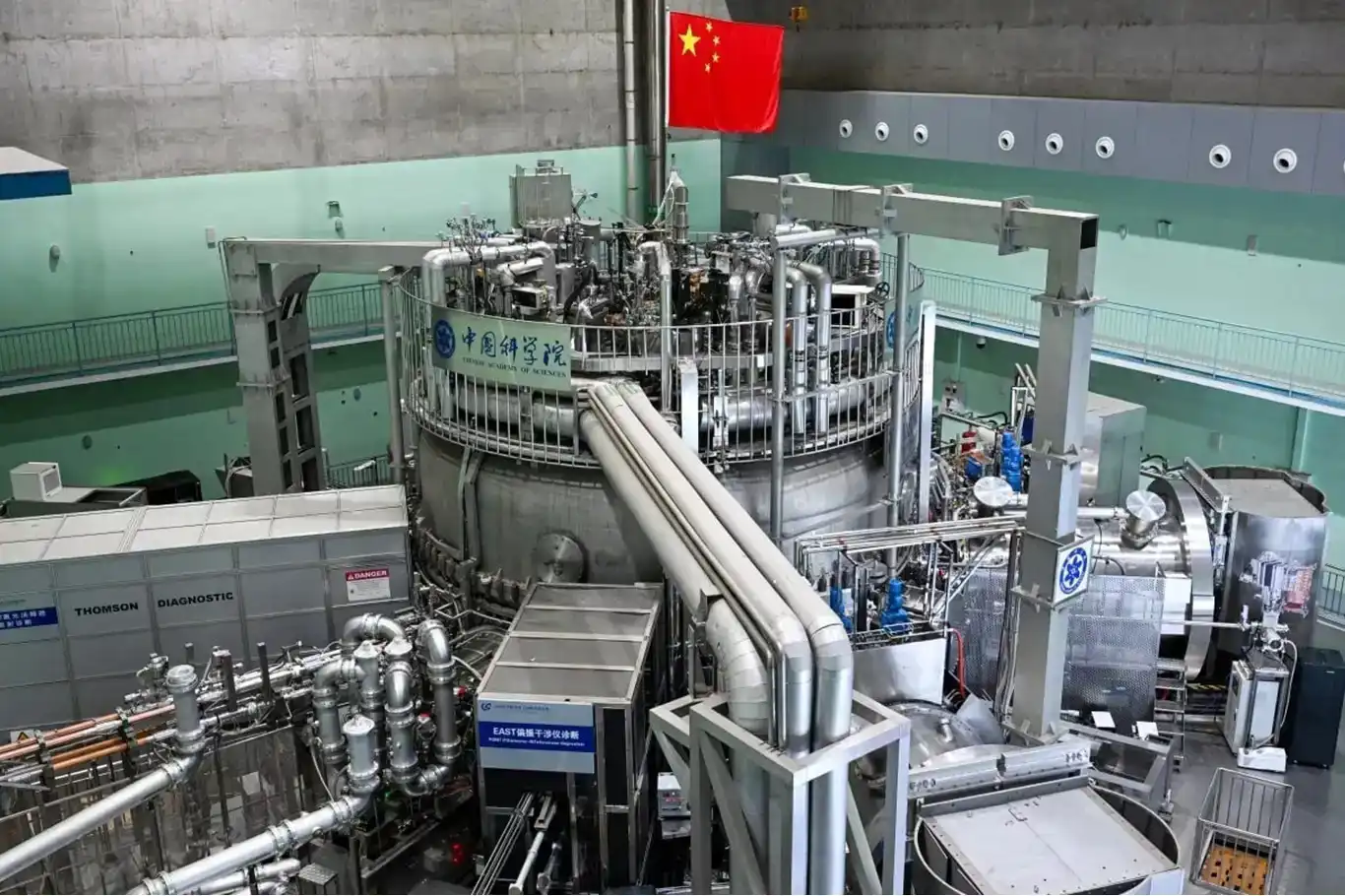China to complete “artificial sun” fusion reactor by 2027


Chinese scientists are set to complete the development of the powerful fusion reactor BEST (Burning Plasma Experimental Superconducting Tokamak), commonly referred to as the “artificial sun”, by 2027.
The project, developed by the Institute of Plasma Physics under the Chinese Academy of Sciences, is located in Hefei, the administrative capital of Anhui Province in eastern China. According to Foreign Ministry spokesperson Mao Ning, the experimental superconducting reactor is planned to be completed in 2027 and could become the world’s first electricity-generating facility of its kind.
The compact fusion reactor features a massive Dewar shell functioning like a high-vacuum thermos. The shell weighs over 400 tons, with a diameter of 18 meters and a height of 5 meters. It is equipped with superconducting magnets that operate at minus 269 degrees Celsius to confine burning plasma composed of deuterium and tritium.
Several Chinese projects have informally earned the nickname “Artificial Sun.” Previously, the same title was given to the EAST (Experimental Advanced Superconducting Tokamak) fusion reactor, which achieved the world’s longest plasma operation, maintaining high-temperature plasma continuously for 1,066 seconds during its latest experiment in early 2025.
Experts say that the BEST reactor will simulate the core conditions of the Sun, producing immense energy through controlled nuclear fusion. This technological advancement is seen as a major milestone in China’s energy strategy, aimed at reducing dependence on fossil fuels and asserting a stronger position in global energy markets.
The successful completion of the “Artificial Sun” could transform China into a global leader in fusion energy, offering a sustainable and high-efficiency alternative to traditional power sources while marking a historic breakthrough in human energy innovation. (ILKHA)
LEGAL WARNING: All rights of the published news, photos and videos are reserved by İlke Haber Ajansı Basın Yayın San. Trade A.Ş. Under no circumstances can all or part of the news, photos and videos be used without a written contract or subscription.
A hacker collective known as the “Cyber Support Front”, reportedly aligned with pro-Iranian cyber networks, announced that it had successfully infiltrated the systems of the Israeli defense contractor MAYA.
WhatsApp has introduced a significant policy update to its Business Solution Terms, effectively barring artificial intelligence (AI) companies from using its platform for developing or training AI technologies, including large language models, generative AI systems, and digital assistants.
Researchers at the University of California, Berkeley, in collaboration with Ajou University and the Georgia Institute of Technology, have developed a self-balancing miniature robot inspired by a species of water strider, potentially transforming search-and-rescue operations and environmental monitoring.